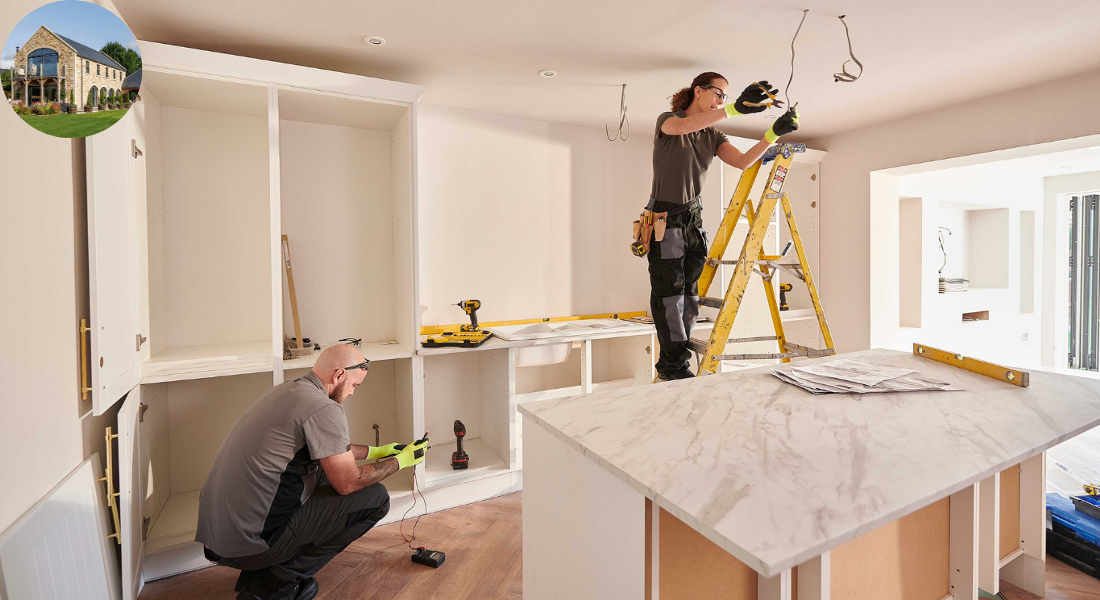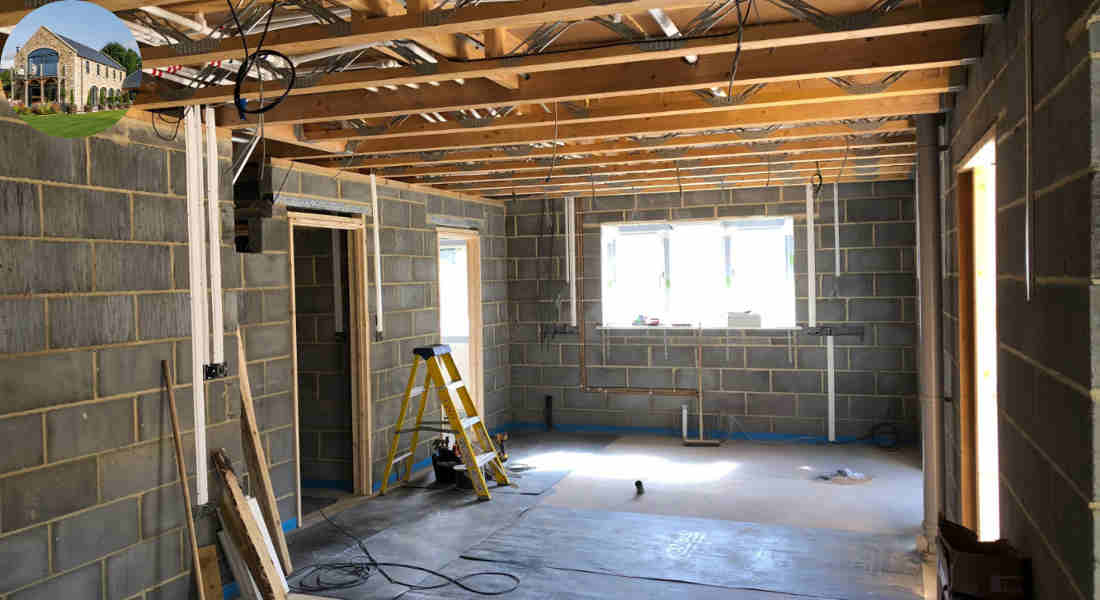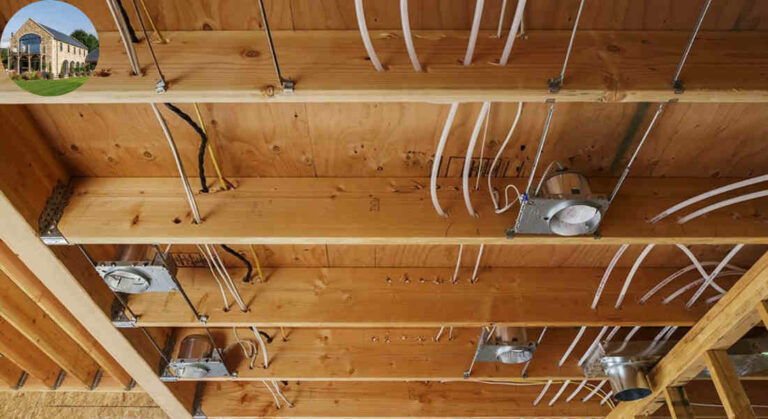When building a new home, planning your electrical wiring is one of the most critical steps. Proper electrical wiring ensures your home is safe, functional, and future-proof. But how much does it cost to wire a new build house in the UK? This is a common question for homeowners embarking on a new build project.
Why Understanding Wiring Costs Is Critical
Building a home is an exciting journey but requires careful budgeting. Electrical wiring is a significant part of this budget, and knowing how much it costs will help you:
- Avoid unexpected expenses during the construction process.
- Plan for the right materials and professional services.
- Ensure compliance with UK safety regulations.
Let’s dive in to understand all the factors that influence wiring costs and how you can estimate them accurately.
What Does Wiring a New Build House Involve?
Wiring a new build home is a complex process that involves more than simply running cables through walls. Here’s a breakdown of what it includes:
You may also read (can i plug my caravan into house mains safely).
Key Components of Electrical Wiring
- Cables and Wires: These transport electricity throughout your home.
- Sockets and Switches: Provide access to power and control lighting or appliances.
- Consumer Units (Fuse Boxes): Distribute electricity safely across circuits.
- Lighting Fixtures: Indoor and outdoor lighting installations.
- Safety Devices: Smoke detectors, residual current devices (RCDs), and surge protectors.
Differences Between Wiring a New Build and Rewiring
Wiring a new build is typically more straightforward than rewiring an older property. New builds have open walls, making it easier to install cables and components. On the other hand, rewiring requires ripping out old wiring, which can be disruptive and expensive.
Factors Affecting the Cost of Wire a New Build House in the UK
Several factors influence how much you’ll pay to wire your new home. Let’s explore these in detail:
Size of the Property
The number of bedrooms, total square footage, and number of floors significantly affect the cost. Larger homes require more wiring, sockets, and switches, which increases material and labor expenses.
Complexity of the Electrical Design
If your home has advanced electrical features, such as:
- Smart home systems (automated lighting, heating, or security),
- Underfloor heating, or
- External lighting for gardens or driveways,
… you can expect a higher cost.
Materials Used
The quality and type of materials play a significant role. Standard wiring materials are cheaper, but premium fittings (like brushed steel sockets or designer light fittings) can increase costs.
Labour Costs and Regional Variations
Electricians’ rates vary across the UK. For example:
- London and the Southeast typically have higher rates.
- Northern regions and smaller towns often have more affordable labor costs.
Compliance with UK Electrical Standards
All wiring in the UK must comply with BS 7671 regulations. Meeting these standards may require investing in higher-quality materials and proper certifications.
Average Cost Breakdown for Wiring a New Build House in the UK
Understanding the approximate costs will help you plan your budget more effectively. Here’s a general breakdown:
You may also read (can you legally sign your house over to a family member).
Costs by Property Size
Property SizeAverage Cost Range
1-Bedroom Flat £1,500 – £3,500
2-Bedroom House £3,000 – £5,000
3-Bedroom House £4,000 – £7,000
4-Bedroom House £5,500 – £9,000
Labor Costs
- Daily electrician rates: £150 – £300
- Hourly rates: £40 – £70
Materials Costs
- Cables and wires: £200 – £800, depending on property size.
- Sockets and switches: £5 – £50 per unit.
- Consumer unit: £200 – £500, depending on quality.
Additional Costs
- Electrical Installation Condition Reports (EICRs): £150 – £300.
- Safety certifications: £100 – £200.
Detailed Cost Components Explained
To understand where your money goes, let’s look at the major components in detail:
Wiring Materials
- Standard cables like 1.5mm or 2.5mm twin core and earth cables are commonly used. Prices vary depending on length and quality.
- For a typical 3-bedroom house, expect to spend around £300 – £500 on wiring.
Consumer Unit
The consumer unit (or fuse box) is the heart of your home’s electrical system. Costs range from £200 for a standard unit to £500 for premium models.
Sockets and Switches
You’ll need multiple sockets and switches throughout your home. Standard plastic fittings cost around £5 per unit, while designer options can go up to £50 or more.
Safety Devices
Safety is non-negotiable. Installing smoke detectors, RCDs, and other safety components will cost around £200 – £400 for a typical home.
Comparing Wiring Costs: New Build vs. Rewiring an Existing House
Wiring a new building is generally more cost-effective than rewiring an older property. Here’s why:
- New builds have open walls, making installation easier.
- Rewiring requires removing old wiring, which increases labor and material costs.
Typical Rewiring Costs
- 2-Bedroom House: £3,500 – £5,500
- 3-Bedroom House: £5,000 – £7,500
How to Get Accurate Quotes for Wiring Your New Build
To avoid surprises, follow these steps:
- Get Multiple Quotes: Contact at least three certified electricians.
- Request a Survey: A professional wiring survey ensures the quote is accurate.
- Ask Questions: Clarify what’s included in the quote—are materials and certifications covered?
You may also read (uncovering the mystery who built your home).

